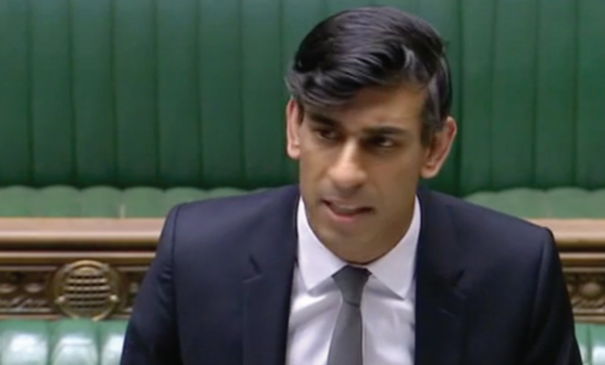Changes to the tobacco age restriction, wages, retail crime, empty shops and town funding, which are all likely to affect local shops, were announced at the Conservative Party conference in Manchester last week.
Prime minister Rishi Sunak claimed the Conservatives to be “the party of small business”, but not all agreed, with statements made by senior ministers affecting small shops described as dangerous, harmful to profitability and potentially fuelling the black market.
Tobacco age restrictions
Sunak announced plans to increase the tobacco age limit by one year, every year, to eventually phase out tobacco sales altogether. It would mean that a child aged 14 today would never be able to legally buy tobacco products.
A free vote will be held on the policy in parliament, which is predicted to pass with majority support from all parties.
One in nine people between the ages of 18 and 24 smoke, according to the Office for National Statistics, delivering millions of pounds in retailer revenue each year.
Unlike the industry uproar that usually accompanies tobacco legislation, last week’s announcement was met with support.
Fed national president Muntazir Dipoti said: “Fed members are responsible and do not sell tobacco to anyone underage. While we are supportive of moves to raise the age, we would remind the government that illicit sellers will continue to sell to those who are underage. We would like to see a commitment to tackle the black market.” Similarly, the ACS vowed to “work with the government on how this policy will be implemented and enforced”.
A poll of more than 120 shop owners last week found 23% agreed with the age increases, compared with 17% against.
Fifty-eight per cent thought the legislation “won’t make any difference whatsoever”.
Vaping restrictions
More controversial were Sunak’s plans to “bring forward measures to restrict the availability of vapes to children”, with “flavours, packaging, point-of-sale displays and disposable vapes” all in the firing line.
While there was no direct mention of an outright ban, the statement signalled a strong legislative response is on the way.
Marcus Saxton, chair of the Independent British Vape Trade Association (IBVTA), said: “Smokers need proven pathways off their addiction. All the evidence shows that single-use products are a crucial first step to getting smokers off tobacco.
“Undermining these products risks undermining the government’s ambitions for a smoke-free England.”
Read more: Government proposes vape and tobacco restrictions
National Living Wage
Chancellor Jeremy Hunt said the National Living Wage will increase to “at least” £11 an hour next April – 58p per hour above the current rate for those aged over 23 years.
For a shop with one full-time and three part-time staff on 20 hours per week, this equates to an extra £52.20 per week in wages, before National Insurance and pension contributions.
The Low Pay Commission is yet to recommend pay rates for next year, but has estimated a raise to between £10.90 and £11.43 is needed to meet the government’s wage targets. Dipoti responded: “As responsible employers, we want staff to be paid the national minimum wage, particularly at a time of inflation.
“However, it should be borne in mind that many small shops are also struggling with soaring costs. Unfortunately, there are hours in the day when some retailers do not generate an income of £11.”
Retail crime
With the government under pressure to properly fund a response to rocketing shoplifting reports, policing minister Chris Philp instead urged shop teams to arrest thieves themselves, stating: “I would also remind everyone that the wider public, including shop staff and security guards, have the power of citizen’s arrest and, where it’s safe to do so, I would encourage that to be used.
“If you let people walk in and take stuff and walk out without proper challenge – including potentially a physical challenge – it will just escalate.”
The statement sparked outrage from retail groups. Retail union USDAW described the suggestion as “dangerous and irresponsible”, and urged shops not to put their staff in dangerous situations.
The Fed also warned that confronting shop-lifters was “high risk”. Dipoti responded: “When shop staff challenge thieves, they are often subject to abuse and sometimes assault.
“We tell our staff to never try to physically stop a crime. It goes without saying that we would never want our customers to expose themselves to this high risk, either.”
Philp’s call for police forces to search non-police databases such as the Passport Office and Immigration Office to identify shoplifters from CCTV footage using AI was better received by retailers.
While police authorities were told to begin using these tools with immediate effect, a new system bringing together these databases for simple use is thought to be at least two years away.
The Fed’s national president added: “The answer to the runaway increase in shoplifting is increased resources for the police and judiciary, together with better CCTV and other security to help police with their investigations.
“We want the police to be able to attend more crimes, and quickly. But the Fed is urging the UK and Scottish governments to provide a £1,500 grant to small shops that can’t afford the security they need.”
Town planning and funding
Fifty-five “overlooked and undervalued” towns in the UK are to receive £20 each across the next 10 years to help rejuvenate their town centres.
The funds are to be backed by powers to auction off empty shops, convert shops and restaurants into other property classes, and convert more town-centre properties into housing.
The funds can also be used to “tackle crime and antisocial behaviour”.
A list of the 55 towns can be found on the government’s website.





Comments
This article doesn't have any comments yet, be the first!